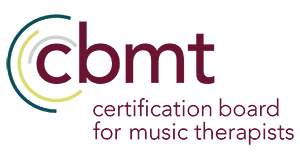CBMT Kicks Off Practice Analysis Process
As the job – or “practice” – of a music therapist evolves and changes, it’s essential that the certification program also evolves to incorporate these changes. It was Winston Churchill who said: “To improve is to change.” That is the goal of the Practice Analysis process in the music therapy profession – to incorporate the changes in the way music therapy is practiced as it develops and improves over time.
Every five years, the Practice Analysis is conducted to develop new Board Certification Domains for the music therapy profession. As CBMT’s primary responsibility is to administer the certifying examination for the MT-BC credential, its exam is based on this nationwide music therapy Practice Analysis that is reviewed and updated to reflect current clinical practice. Board certified music therapists must practice within the Board Certification Domains and adhere to the CBMT Code of Professional Practice.
The five-year mark is quickly approaching, and the preliminary steps in the process are already underway. The first step – applications for Practice Analysis Committee (PAC) members for this cycle – were due by the beginning of September.
This committee is intended to be a cross-section of the certificant body rolled up in 10 to 12 carefully selected professionals. They apply and are reviewed by the board development committee, then recommendations for selection are made to the board.
The work of the PAC committee will begin in earnest in early 2024. PAC committee members are practitioners and educators who are appointed to the committee. Part of their work is to document their practice and try to ensure representation of every theoretical model, population served, and all different cultural areas that need to be represented so that no bias is involved in the creation of the survey – or that biases are noted and addressed.
The PAC committee will develop a new Practice Analysis Survey that will be distributed in summer of 2024. Data regarding knowledge, skills, and abilities is collected by asking current practitioners to complete a detailed survey regarding their actual on-the-job requirements. Examinations are then linked to the defined body of knowledge based on data from the Practice Analysis and created to demonstrate a high degree of reliability and validity through psychometrically accepted statistical methods.
The responses to that survey will be reviewed and new test questions will be developed based on any new content the survey responses bring to light. The process measures practice and creates Board Certification Domains (BCDs) – effectively the exam content outline. To be included on the BCD listing, responses must meet a threshold of importance and inclusion across the total number of all responses, all geographic regions, and all years of experience.
Those new test questions will be incorporated into the CBMT Board Certification exam beginning in 2025. Old exam items not relative anymore are revised or retired, and new content items are incorporated into the exams after being pre-tested to ensure content validity and reliability.
All told, the process for the Practice Analysis takes a couple of years.
“It’s a highly complex process, but it boils down to a simple question: What is the job of a music therapist at this point in time, and what does competence in the profession look like?” said Joy Schneck, CBMT Executive Director.
The Practice Analysis works to advance the profession of music therapy. It encourages necessary links between examination content and job conduct by defining content that is critical to practice, and it also identifies the critical and essential skills necessary for safe and effective music therapy practice.
The current CBMT Board Certification Domains in use were developed from the results of the Practice Analysis study that kicked off in 2018 and was completed and put into effect in 2020. The Board Certification Domains define the body of knowledge that represents competent practice in the profession of music therapy and identifies what an MT-BC may do in practice. Continuing education credits, for example, must relate to an area identified in the Board Certification Domains.
The Practice Analysis process currently getting underway will lead to new Board Certification Domains which will be the source of reference for recertification requirements and test specifications beginning in 2025.
Why is the Practice Analysis conducted automatically every five years? “Over the years, we’ve determined that the five-year mark is long enough but not too long to reevaluate what is happening in the profession,” Schneck said.
One of the rapidly changing aspects in the profession that will be thoroughly examined is the increasing use of telehealth and telepractice – which skyrocketed during the pandemic. What do competency measures in this type of practice look like? That is part of what the Practice Analysis will evaluate in this cycle.
The Practice Analysis is developed using guidelines issued by the U.S. Equal Employment Opportunity Commission and American Psychological Association standards for test validation. CBMT also works with a testing firm, PSI, and adheres to the guidelines of the American Educational Research Association and the National Council on Measurement in Education. The MT-BC program is accredited by the National Commission of Certifying Agencies, the accrediting body of the Institute for Credentialing Excellence, ICE, which additionally requires these practices to be followed.
You can watch CBMT’s video explaining the Practice Analysis process in more detail. To learn more about CBMT’s role in the profession of music therapy, visit cbmt.org.










